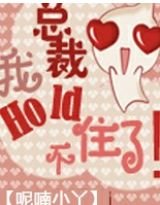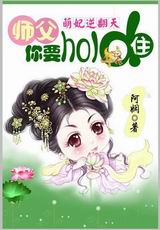aphorisms-第3部分
按键盘上方向键 ← 或 → 可快速上下翻页,按键盘上的 Enter 键可回到本书目录页,按键盘上方向键 ↑ 可回到本页顶部!
————未阅读完?加入书签已便下次继续阅读!
head; and vertigo; impairs the movements of the eyes and the whole
body; and renders the alvine discharges watery。
18。 With regard to the seasons; in spring and in the commencement of
summer; children and those next to them in age are most comfortable;
and enjoy best health; in summer and during a certain portion of
autumn; old people; during the remainder of the autumn and in
winter; those of the intermediate ages。
19。 All diseases occur at all seasons of the year; but certain of
them are more apt to occur and be exacerbated at certain seasons。
20。 The diseases of spring are; maniacal; melancholic; and epileptic
disorders; bloody flux; quinsy; coryza; hoarseness; cough; leprosy;
lichen alphos; exanthemata mostly ending in ulcerations; tubercles;
and arthritic diseases。
21。 Of summer; certain of these; and continued; ardent; and
tertian fevers; most especially vomiting; diarrhoea; ophthalmy;
pains of the ears; ulcerations of the mouth; mortifications of the
privy parts; and the sudamina。
22。 Of autumn; most of the summer; quartan; and irregular fevers;
enlarged spleen; dropsy; phthisis; strangury; lientery; dysentery;
sciatica; quinsy; asthma; ileus; epilepsy; maniacal and melancholic
disorders。
23。 Of winter; pleurisy; pneumonia; coryza; hoarseness; cough; pains
of the chest; pains of the ribs and loins; headache; vertigo; and
apoplexy。
24。 In the different ages the following complaints occur: to
little and new…born children; aphthae; vomiting; coughs;
sleeplessness; frights inflammation of the navel; watery discharges
from the ears。
25。 At the approach of dentition; pruritus of the gums; fevers;
convulsions; diarrhoea; especially when cutting the canine teeth;
and in those who are particularly fat; and have constipated bowels。
26。 To persons somewhat older; affections of the tonsils;
incurvation of the spine at the vertebra next the occiput; asthma;
calculus; round worms; ascarides; acrochordon; satyriasmus; struma;
and other tubercles (phymata); but especially the aforesaid。
27。 To persons of a more advanced age; and now on the verge of
manhood; the most of these diseases; and; moreover; more chronic
fevers; and epistaxis。
28。 Young people for the most part have a crisis in their
complaints; some in forty days; some in seven months; some in seven
years; some at the approach to puberty; and such complaints of
children as remain; and do not pass away about puberty; or in
females about the commencement of menstruation; usually become
chronic。
29。 To persons past boyhood; haemoptysis; phthisis; acute fevers;
epilepsy; and other diseases; but especially the aforementioned。
30。 To persons beyond that age; asthma; pleurisy; pneumonia;
lethargy; phrenitis; ardent fevers; chronic diarrhoea; cholera;
dysentery; lientery; hemorrhoids。
31。 To old people dyspnoea; catarrhs accompanied with coughs;
dysuria; pains of the joints; nephritis; vertigo; apoplexy;
cachexia; pruritus of the whole body; insomnolency; defluxions of
the bowels; of the eyes; and of the nose; dimness of sight; cataract
(glaucoma); and dullness of hearing。
SECTION IV。
1。 We must purge pregnant women; if matters be turgid (in a state of
orgasm?); from the fourth to the seventh month; but less freely in the
latter; in the first and last stages of pregnancy it should be
avoided。
2。 In purging we should bring away such matters from the body as
it would be advantageous had they come away spontaneously; but those
of an opposite character should be stopped。
3。 If the matters which are purged be such as should be purged; it
is beneficial and well borne; but if the contrary; with difficulty。
4。 We should rather purge upward in summer; and downward in winter。
5。 About the time of the dog…days; and before it; the administration
of purgatives is unsuitable。
6。 Lean persons who are easily made to vomit should be purged
upward; avoiding the winter season。
7。 Persons who are difficult to vomit; and are moderately fat;
should be purged downward; avoiding the summer season。
8。 We must be guarded in purging phthisical persons upward。
9。 And from the same mode of reasoning; applying the opposite rule
to melancholic persons; we must purge them freely downward。
10。 In very acute diseases; if matters be in a state of orgasm; we
may purge on the first day; for it is a bad thing to procrastinate
in such cases。
11。 Those cases in which there are tormina; pains about the
umbilicus; and pains about the loins; not removed either by
purgative medicines or otherwise; usually terminate in dry dropsy。
12。 It is a bad thing to purge upward in winter persons whose bowels
are in a state of lientery。
13。 Persons who are not easily purged upward by the hellebores;
should have their bodies moistened by plenty of food and rest before
taking the draught。
14。 When one takes a draught of hellebore; one should be made to
move more about; and indulge less in sleep and repose。 Sailing on
the sea shows that motion disorders the body。
15。 When you wish the hellebore to act more; move the body; and when
to stop; let the patient get sleep and rest。
16。 Hellebore is dangerous to persons whose flesh is sound; for it
induces convulsion。
17。 Anorexia; heartburn; vertigo; and a bitter taste of the mouth;
in a person free from fever; indicate the want of purging upward。
18。 Pains seated above the diaphragm indicate purging upward; and
those below it; downward。
19。 Persons who have no thirst while under the action of a purgative
medicine; do not cease from being purged until they become thirsty。
20。 If persons free from fever be seized with tormina; heaviness
of the knees; and pains of the loins; this indicates that purging
downward is required。
21。 Alvine dejections which are black; like blood; taking place
spontaneously; either with or without fever; are very bad; and the
more numerous and unfavorable the colors; so much the worse; when with
medicine it is better; and a variety of colors in this case is not
bad。
22。 When black bile is evacuated in the beginning of any disease
whatever; either upward or downward; it is a mortal symptom。
23。 In persons attenuated from any disease; whether acute or
chronic; or from wounds; or any other cause; if there be a discharge
either of black bile; or resembling black blood; they die on the
following day。
24。 Dysentery; if it commence with black bile; is mortal。
25。 Blood discharged upward; whatever be its character; is a bad
symptom; but downward it is (more?) favorable; and so also black
dejections。
26。 If in a person ill of dysentery; substances resembling flesh
be discharged from the bowels; it is a mortal symptom。
27。 In whatever cases of fever there is a copious hemorrhage from
whatever channel; the bowels are in a loose state during
convalescence。
28。 In all cases whatever; bilious discharges cease if deafness
supervenes; and in all cases deafness ceases when bilious discharges
supervene。
29。 Rigors which occur on the sixth day have a difficult crisis。
30。 Diseases attended with paroxysms; if at the same hour that the
fever leaves it return again next day; are of difficult crisis。
31。 In febrile diseases attended with a sense of lassitude; deposits
form about the joints; and especially those of the jaws。
32。 In convalescents from diseases; if any part be pained; there
deposits are formed。
33。 But if any part be in a painful state previous to the illness;
there the disease fixes。
34。 If a person laboring under a fever; without any swelling in
the fauces; be seized with a sense of suffocation suddenly; it is a
mortal symptom。
35。 If in a person with fever; the become suddenly distorted; and he
cannot swallow unless with difficulty; although no swelling be
present; it is a mortal symptom。
36。 Sweats; in febrile diseases; are favorable; if they set in on
the third; fifth; seventh; ninth; eleventh; fourteenth; seventeenth;
twenty…first; twenty…seventh; and thirty…fourth day; for these
sweats prove a crisis to the disease; but sweats not occurring thus;
indicate pain; a protracted disease; and relapses。
37。 Cold sweats occurring with an acute fever; indicate death; and
along with a milder one; a protracted disease。
38。 And in whatever part of the body there is a sweat; it shows that
the disease is seated there。
39。 And in whatever part of the body heat or cold is seated; there
is disease。
40。 And wherever there are changes in the whole body; and if the
body be alternately cold and hot; or if one color succeed another;
this indicates a protracted disease。
41。 A copious sweat after sleep occuring without any manifest cause;
indicates that the body is using too much food。 But if it occur when
one is not taking food; it indicates that evacuation is required。
42。 A copious sweat; whether hot or cold; flowing con
![[psycho-pass]不完全刑事手册 作者:月_殇封面](http://www.nstxt.com/cover/noimg.jpg)

